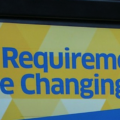Digital policy has been the source of seemingly never-ending frustration for years in Canada. The government chose to prioritize two flawed bills on online streaming and online news, both of which sparked considerable opposition, lengthy delays, and ultimately delivered few actual benefits (Bill C-11 faces at least another year of hearings at the CRTC, Bill C-18 is a disaster that has left many media companies worse off). Its 2021 consultation on online harms was so badly received that it was quickly shelved and has required nearly three years to recover. The policies it should have prioritized such as stronger privacy and competition rules were largely left to languish with Bill C-27 still in committee and now subject to mounting opposition over the decision fold AI regulation with minimal consultation into the bill.
Given that track record, it is hard to be optimistic as the online harms rules get set to take centre stage. There are two bills at play, one that will be backed by the government and the other by the opposition Conservative party. The government bill is the long-delayed online harms package that Prime Minister Justin Trudeau says will be introduced next week. The specifics are not yet public, but it is a pretty good bet that the bill will be framed around protecting children by establishing new liability for digital platforms that fail to act responsibly with the focus on illegal content such as hate, terrorism, and sexual exploitation of children. Awful but lawful content – including misinformation or disinformation – is unlikely to be part of the bill. Further, as reported earlier this week, the governance framework from the 2021 consultation will resurface with a complaints mechanism overseen by a digital safety commissioner. The last proposal was so bad that many will rightly express skepticism about the bill. But details matter and how the government attempts to strike the balance between safety, privacy, and expression will require careful examination.
While the government’s support for the online harms bill is unsurprising given that it has been promised for years, the current political dynamics behind the second bill – Bill S-210 – are more difficult to explain. I’ve described the bill, which purports to restrict underage access to sexually explicit materials, as the most dangerous Internet bill you’ve never heard of since it mandates the use of age verification technologies that raise serious privacy concerns (Australia rejected a similar law on those grounds), contains no thresholds such that it covers social media (Twitter), search (Google) and chat sites (Reddit), and features a system of court-ordered blocking of lawful content. A better approach would be to focus on providing parents with filtering software, so that they could better manage their kids’ Internet use and prevent access to content they deem inappropriate. Alternatively, if the bill was narrowly targeted to pornography-only sites, there would be room to defend it (you can listen to Senator Julie Mivelle-Dechêne, the bill’s architect, do so on a recent Lawbytes podcast). As it now stands, Bill S-210 is likely be challenged on constitutional grounds and should be firmly rejected.
Yet despite its many flaws, the bill has already passed in the Senate and though opposed by the government, received support in the House from Conservative, NDP and Bloc MPs alongside a smattering of Liberal MPs. This sets up a head-shaking dynamic of the government opposing the bill and Conservative leader Pierre Poilievre supporting it. Yesterday, Poilievre reiterated his support for legislated age verification for pornography access, a decidedly off-brand approach in which the party that has championed Internet freedoms suddenly now finds itself supporting a bill that features website blocking of lawful content, subjects millions of Canadians to privacy-invasive age verification technology requirements overseen by a government agency such as the CRTC, and institutes regulations that apply to broadly used search and social media services. That can’t possibly meet the definition of common sense for many Canadians.












internet jobs are a growing industry and an exciting opportunity, saving time and money for both businesses and employees alike. Flexible work, whether full-time or casual jobs, uv are available in virtually every industry – you just need to know where to look.
Here Look…… https://Work9Virtually1.blogspot.com
What a pathetic country we live in.
I figure that the issues around S-210 and the upcoming government bill are purely politics; S-210 wasn’t introduced by the government and therefore they won’t be able to take credit for it in the upcoming election. The Conservatives are supporting it for the simple reason that it isn’t a government bill and, if it fails in the HoC, they can say in the upcoming election that the LPC and anyone else who votes against it is against protecting our kids (in the same way that the government claimed that the CPC was unwilling to support Ukraine by voting for the trade agreement, while what the CPC was rejecting it because of something in it that arguably wasn’t trade related).
Party politics in Canada isn’t about doing what is best for the country; it is about doing what is best for (in descending order) fearless leader, the party, and finally the public. Our practice of party discipline doesn’t help matters, since all members of the party are beholden to the party leader to be allowed to represent the party (not allowed to run in the next election for the party, or they get JWR’ed). Cabinet members are in an even more precarious position, since they occupy the cabinet position at the whim of the PM. Fail the PM or PMO and you can lose the position along with the associated perks and salary boost. For the non-government parties it is no better. The only MPs who are able to represent their constituents are those who sit as an independent (and those would be eliminated by a PR system).
You nailed it, Kevin! Canadian politics is a top example on how NOT to govern. The party leader (dictator) will slap down a representative’s idea, no matter how good it is, if it’s against the party dogma.
There are a few organized parties that make the correct noises, but people are so entrenched in the lib/con/ndp triad that they have little hope. Switzerland has close to the best answer.
When contemplating “pay someone to write my essay,” research is crucial. Seek reputable services with positive reviews, ensuring transparency in pricing and writer qualifications. Clearly communicate your expectations and ensure adherence to academic standards. Balancing assistance with academic integrity is key for a successful collaboration.
“My internet censorship law is better than your internet censorship law.”
How far as politics devolved when this is the core talking point from the two largest political parties in this country?
I am expecting that the government bill will be made into a “Confidence” bill meaning that the agreement with the NDP comes into play, and the votes are whipped. That it has nothing to do with money is beside the point; this has occurred previously with the current government.
Personally I’d love to see there be no such thing as an automatic “confidence” vote, meaning that even a vote against the budget implementation bill would not be a non-confidence vote. Instead I believe that all confidence motions should be explicitly raised by the Opposition (not necessarily the Official Opposition), and voted on without party discipline being involved. I know that I am farting against the wind on this one…
Haist. So bad.. Hou wala…
Halifax Excavators
While it’s true that independent MPs may be better positioned to represent their constituents, it’s important to consider the potential impact of a proportional representation system on the diversity of voices in parliament.
Jules | drywall business
I am very enthusiastic about gaming successfully anyway, but some things trouble me, and I wish I could make things clearer and probably consider cs 2 maps gaining huge popularity lately among gaming gamers across the globe. I understand the high competitiveness in this regard, and considering extra boosting options may work for me, bringing decent profits.
The opposition Conservative party is backing one of the two legislation that are now in play, while the government will support the other.